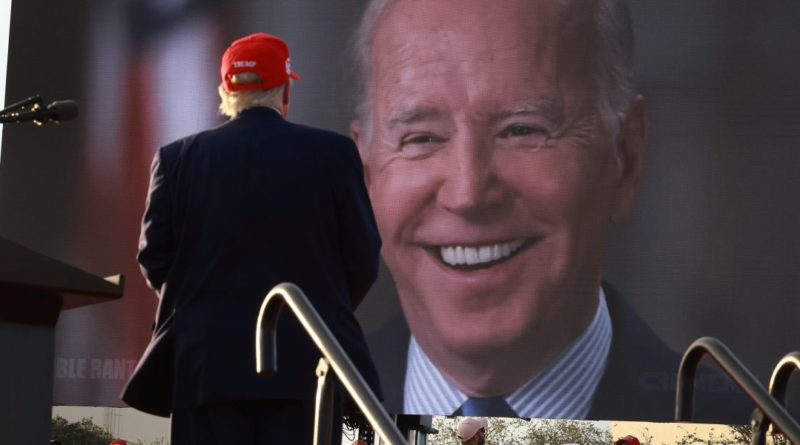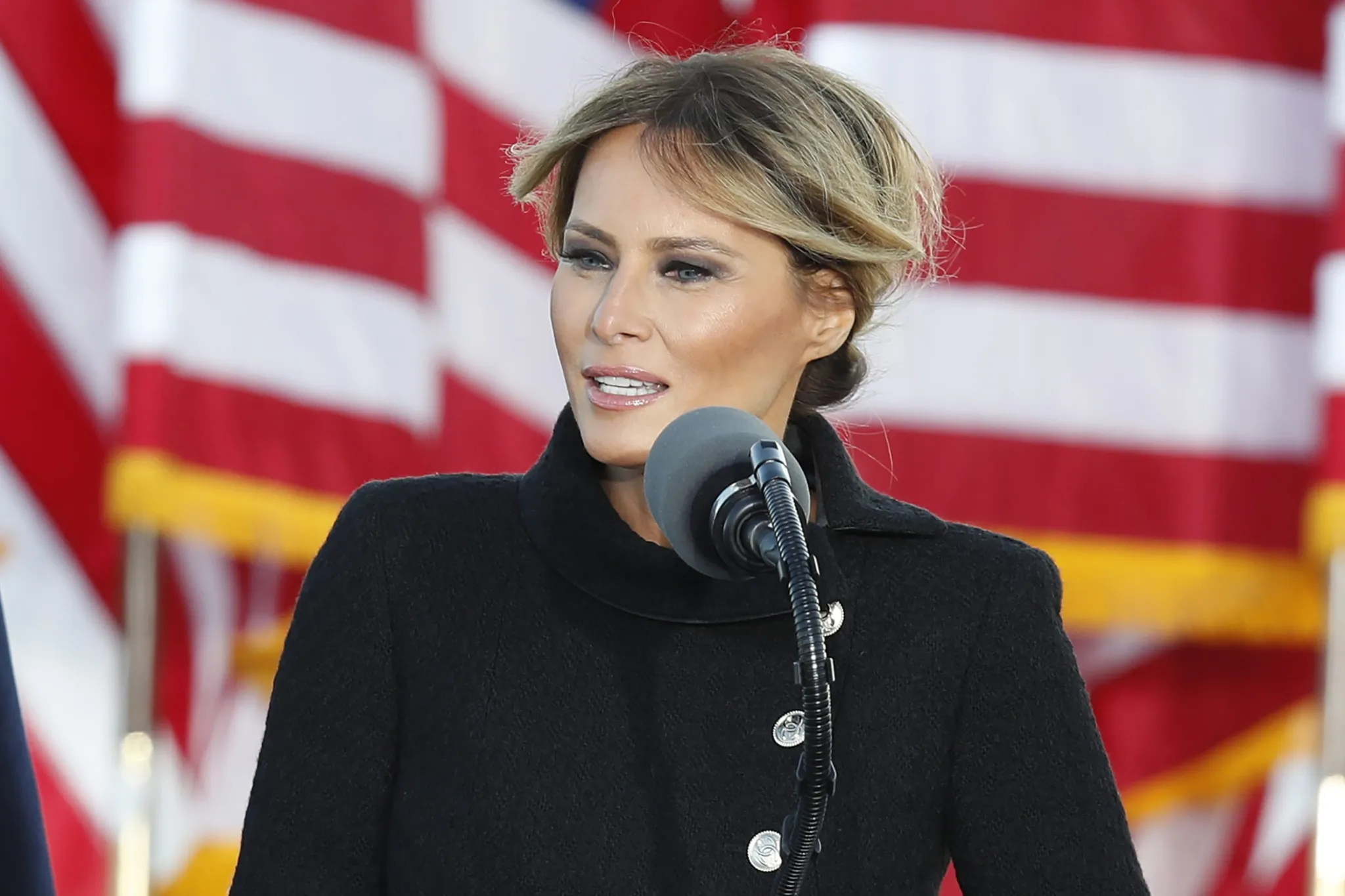As noise, tensions and uncertainty around who will be the next U.S. president heightens, Wall Street experts have the same advice
Presidents cycle through the White House, but Wall Street remains unfazed about the next leader—for now. Despite the looming uncertainty over the Oval Office occupant by year-end, banking heavyweights are bullish on the market’s prospects, predicting a rally regardless of who takes the oath in January.
Analysts told Fortune that the whims of incoming politicians—particularly in these early stages of the elections—are merely “background noise” for the time being, adding they’re more focussed on continuity of economic performance as opposed to proposed policy.
With a significant political event on the horizon, business titans will inevitably be pressed for their outlook.
Jamie Dimon, CEO of JPMorgan Chase for example, told CNBC at Davos that President Trump had been “kind of right” about certain issues.
The man who previously described himself as “barely a Democrat” has butted heads with President Trump, but cautioned President Biden against dismissing MAGA supporters, adding: “Can we stop that stuff and actually grow up and treat other people respectfully and listen to them a little bit?”
Likewise, the CEO of ChatGPT maker OpenAI, Sam Altman, said although “a lot is at stake” in the next election, he believes AI and America in general will be “fine.”
Speaking to Bloomberg, also at Davos, Altman said: “I think elections are huge deals. I believe that America’s going to be fine, no matter what happens in this election.”
But as noise, tensions and uncertainty around the highest office in America increases towards the end of the year, Wall Street experts had the same advice: don’t base portfolios on politics.
Too early to care
There’s plenty to keep investors occupied at the moment: When will the Fed lower the base rate? Will inflation rebound? Might geopolitical tension cause economic disruption? Will jobs hold steady? And can consumers remain robust?
Although an election could sway a number of these factors, some analysts said they’re not overly paying attention to political maneuvers right now.
“Markets don’t really care at this stage,” said Paul Donovan, Chief Economist at UBS Global Wealth Management. “Investors are not pricing in anything about the election outcome in November, which remains complicated.
“There is an assumption that former U.S. President Donald Trump would win the Republican nomination, so what’s happening at the moment is merely background noise.”
In further conversation with Fortune, Donovan’s UBS colleague Tom McLoughin explained markets will hold steady until the landscape is more defined.
McLoughin, who is UBS’s Americas Head of Fixed Income and Municipal Securities, added markets will become more “preoccupied” with election news after the summer.
Goldman Sachs is likewise keeping its cards close to its chest.
In a note sent to Fortune this week, analysts Dominic Wilson and Vicky Chang wrote that although the election has the potential to be a “major market event” it is hard to position outcomes at this stage.
An end-of-year rally
Like many economic issues at the moment, analysts are divided on the details but reach a general consensus on the trajectory of the economy.
For example, economists widely agree that a soft landing is likely to happen during 2024 and that the Fed will begin cutting rates around the middle of the year.
And while bull and bear outlooks split the market, generally, economists agree that when the political uncertainty comes to an end in Q4 2024, the market will see an uptick.
On the bullish side, Bank of America’s Steve Suttmeier, Chief Equity Technical Strategist, said the S&P 500 could tip over the 5,000 mark.
According to his calculations over the 24 cycles from 1928 to 2020, the SPX has been up an average of 75% of the time with a “solid” average return of 7.5%.
However, that performance varies across the year, with the note seen by Fortune outlining that the S&P500 often struggles between January and May, “prior to much stronger returns for the rest of year four, punctuated by a June through August summer rally and November through December post-election relief rally.”
From a long-term, secular bull perspective, he added: “The 2022 to 2023 … pattern and our secular bull market roadmap charts also suggest that the S&P500 spends some time above 5000 in 2024.”
Citigroup is also expecting to see equities trade well in 2024 with Alex Saunders, Citi Research’s quantitative global macro and asset allocation team head, telling Fortune the assets tend to trade well in election years, particularly if an incumbent, like Joe Biden, is running.
A mean-reversion is also often expected post-election, with asset prices and historical returns settling back into their long-term trajectory.
JPMorgan’s global market strategist Meera Pandit isn’t as sold on the bullish outlook, as from her dataset—from 1932 to present—S&P 500 returns on average were 6.2% during election years vs. 9.6% during non-election years.
However, Pandit agreed that in Q4 investors can expect some optimism.
“Markets tend to be more volatile in the lead-up to the election, but after election day, that source of uncertainty is cleared, and, regardless of the result, markets move on and refocus on the fundamentals,” she wrote in a note supplied to Fortune.
“In fact, median returns in the first three quarters of an election year were 1.9% compared to 3.1% in the fourth quarter going back to 1936.”
Portfolios and politics
Despite this trajectory—the exception to Pandit’s data being 2000, when the outcome was eventually ruled by the Supreme Court, and 2008, when the first bubbles of the financial crisis were emerging—the analyst encouraged investors to keep their eyes on the long game instead of making portfolio decisions based on politics.
“Although uncertainty can create opportunity, investors often make their worst mistake during uncertain times, which can sometimes take years for portfolios to recover from,” she wrote.
“Political opinions are best expressed at the polls, not in a portfolio. One cardinal rule investors ought to follow: don’t let how you feel about politics overrule how you think about investing.”
Despite voters often thinking the economy performs better under their preferred candidate—thus potentially impacting their choices—Pandit outlines this is likely not true.
Under both Obama and Trump, for example, returns on the S&P were around 16%.
As such, she adds, “macro conditions, like ultra-low interest rates … were a more influential driver of above-average returns during those periods, rather than the policy prescriptions each president espoused.”
Vanguard research challenges the commonly held notion that elections trigger market volatility. Examining the 100 days before and after elections from 1984 to 2020, volatility stood at 16.5% and 15.9%, respectively—both lower than the overall 17.9% during that period.
JPMorgan, though slightly cautious about volatility, aligns with Vanguard’s advice on how investors should navigate elections, emphasizing: “It’s natural to be concerned about elections, but historical data indicates they are a nonissue for your portfolio and the markets.”




